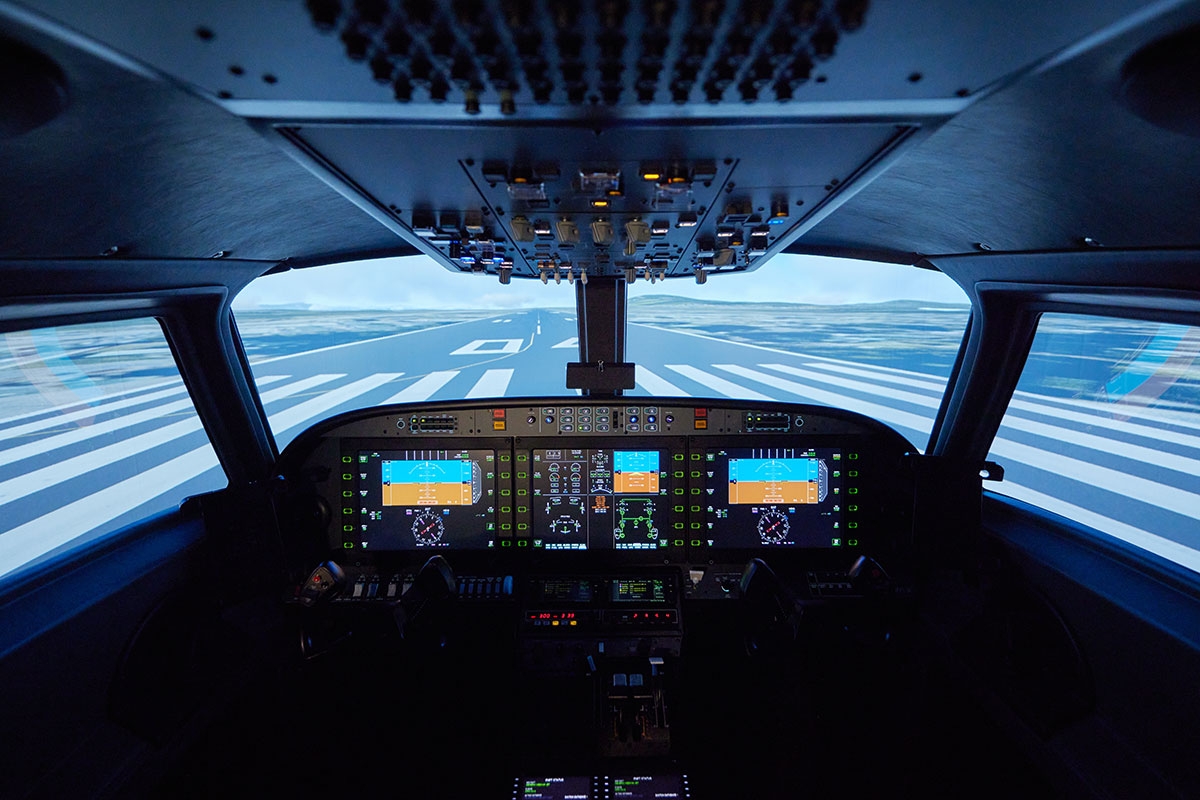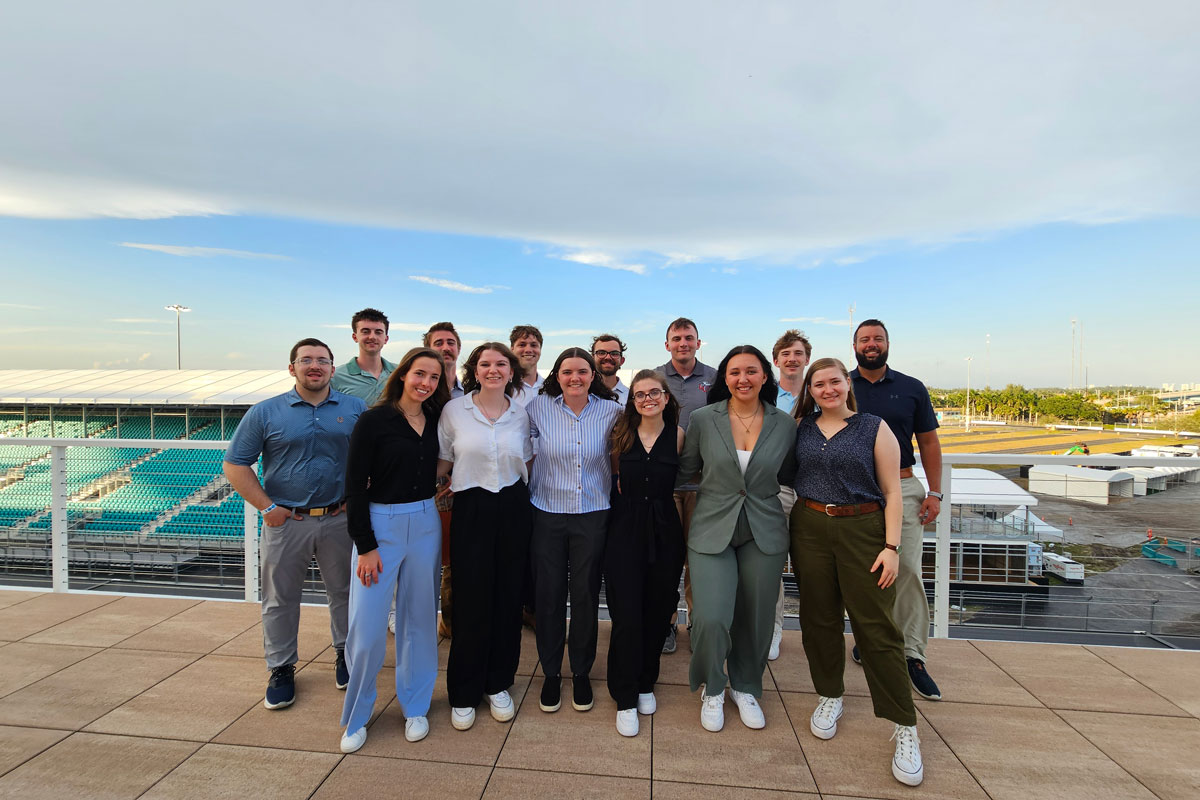Search News Archives
Filter News Articles
Additional Navigation
School of Aeronautics simulator center upgraded with high-tech ALSIM device
October 29, 2021 : By Ted Allen - Office of Communications & Public Engagement
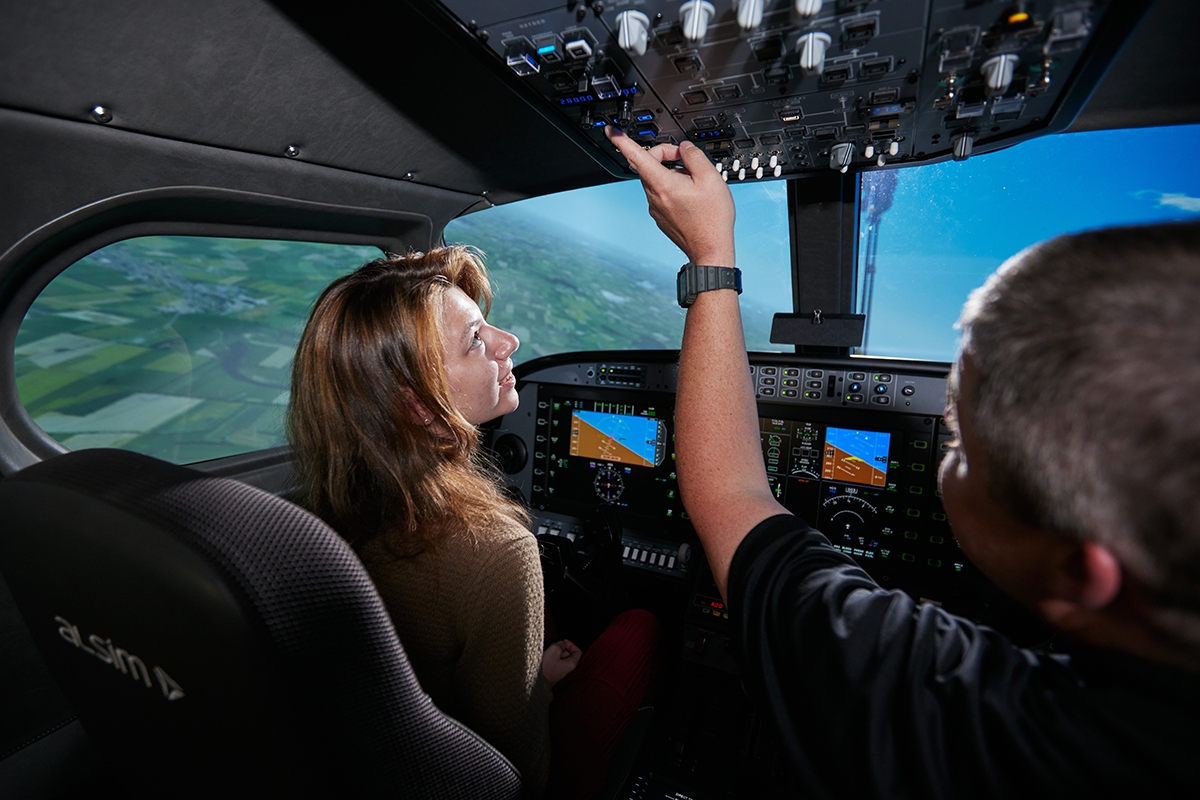
A new multi-aircraft flight simulator, the ALX, manufactured by ALSIM, will take the Liberty University School of Aeronautics’ simulation center in DeMoss Hall to the next level starting this spring.
ALSIM has installed 400 of its devices in 50 countries worldwide, but Liberty is one of only a handful of flight schools in North America to offer the technologically advanced ALX device, a crew-based simulator that trains two pilots simultaneously.
In an aviation industry that is in a constant state of flux, the benefit of this particular flight simulator is the ability to train students to fly multiple types of turbine aircraft. It will help to equip, mentor, and send out student pilots pursuing various career paths through the school’s missions, military, and commercial/corporate degree tracks.
“We are very grateful for the resources God has given us to be able to train awesome aviators to be Champions for Christ in the aviation industry,” said Kevin Martin, Liberty’s Associate Director of Flight Training Innovations and Operations Technology.
Liberty is looking to maintain its competitive edge through partnerships with companies such as ALSIM.
“We don’t want to just be a customer,” Martin said. “We want to innovate and push the bar higher in every aspect utilizing technology for training. We’ve been working with ALSIM for about four years on different projects, so we’re excited to get the (ALX) in here to continue that partnership.”
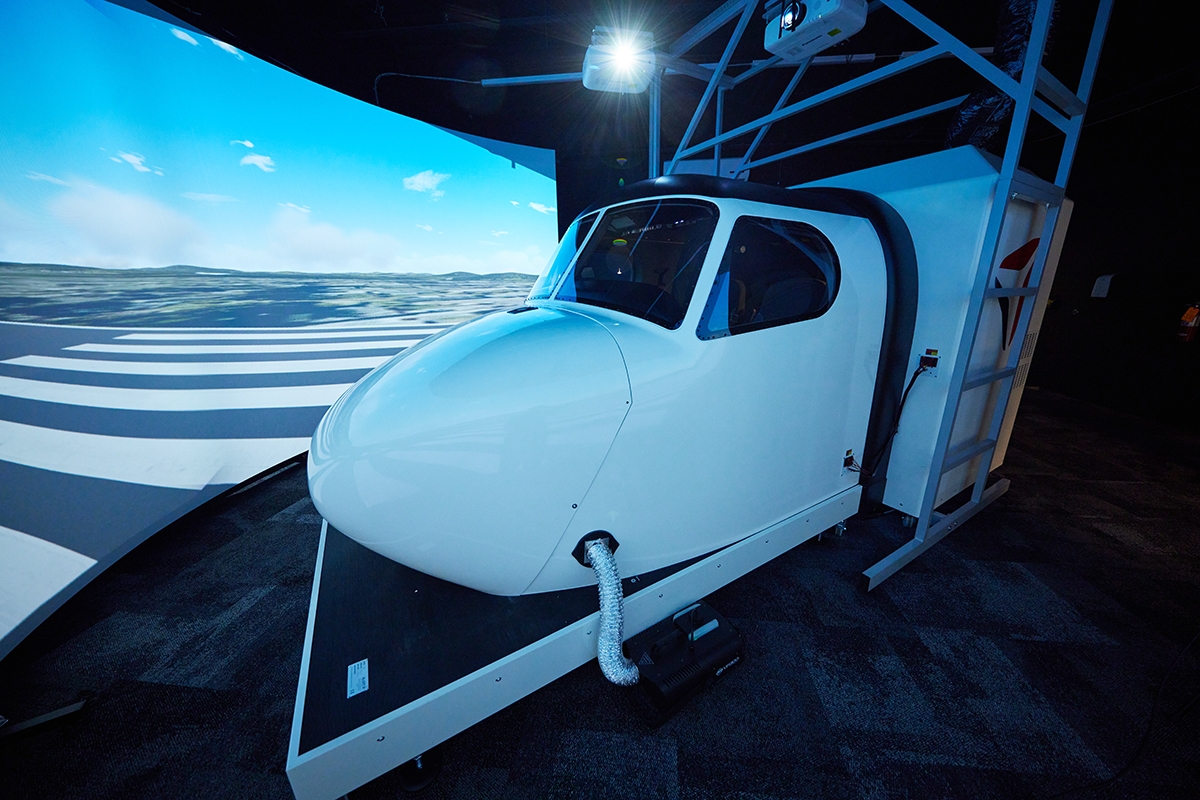
Martin and his staff disassembled and reassembled the state-of-the-art device over the past month in order to get it into the simulator center after it arrived by ship from France.
“We took it all apart and then we put it all back together, and when (the ALSIM representatives) got here, they said, ‘That’s amazing. You guys nailed it,’” he said. “They didn’t really make any changes whatsoever.”
Liberty freshman Becky Hunt was one of the first students to test the simulator under guidance from Martin.
“That is just so cool,” she said, noting she may want to get her pilot’s license after the experience. “It was amazing. It feels very, very, very real. I’m star-struck right now. That was unbelievable.”
Twenty students will be trained using the new simulator in the AVIA 436 advanced jet training course next semester, but that number will double by next school year with 40 in each semester (fall and spring) and the summer term, for a total of 120 students using it per year.
“If they’re pursuing military, missions, or commercial/corporate aviation, there will be an opportunity for them to have access to this advanced, state-of-the-art training platform,” said Jerrold Wangberg, Liberty’s Executive Director of Training Innovations and Operations Technology for the sim center as well as an adjunct professor and advisor of the NIFA flight team.
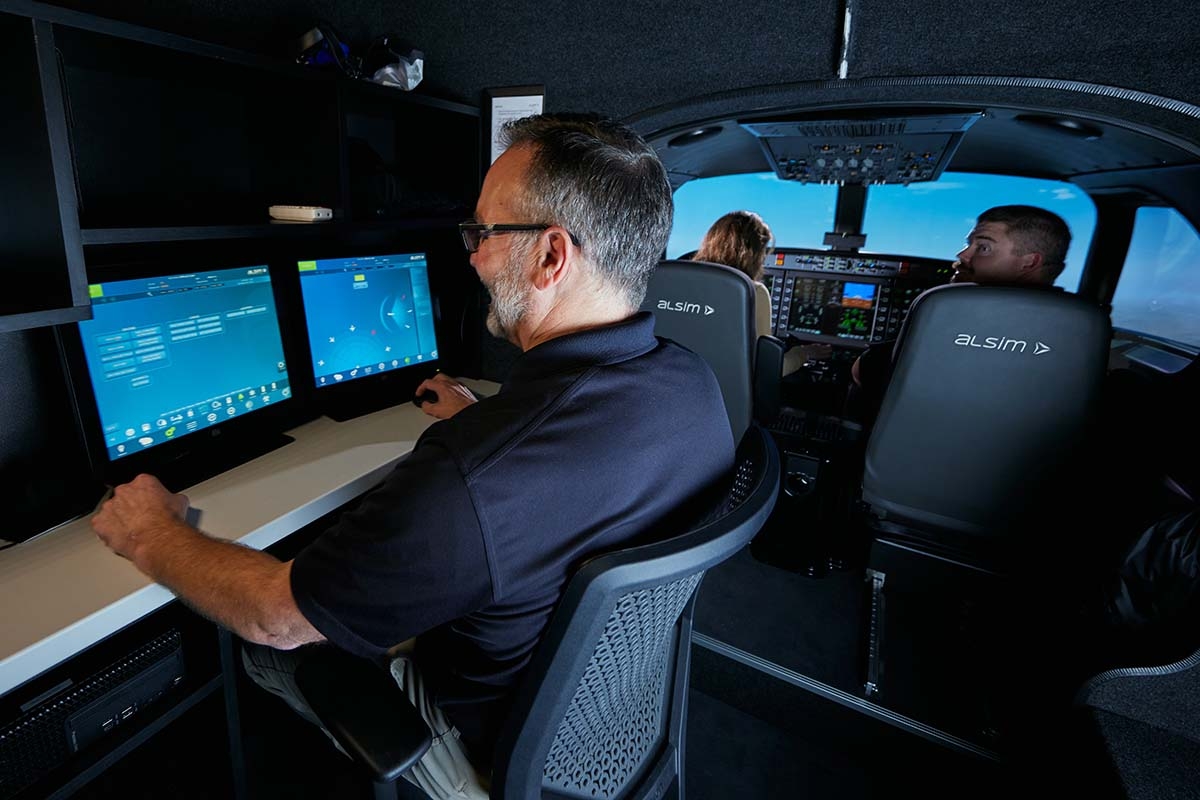
“Our industry partners have expressed a desire for our graduates to be equipped to operate simple to complex aircraft, operating from slow to fast speeds,” SOA Dean Dr. Rick Roof added. “The ALX will ensure that we meet those expectations.”
Martin said an airplane cockpit is not an ideal classroom.
“In the airplane, it’s loud, it’s hot, you’re bouncing around, you’re trying to aviate, navigate, communicate — and learn,” Martin said. “Our training philosophy in here is to train new concepts in the simulator before putting you in the airplane. We want to learn those concepts here, and that way they can correlate and transfer it directly into the airplane, and that’s the goal.”
The advanced jet course familiarizes student pilots with multiple advanced aircraft and their associated systems and flight regimes, while allowing them to simulate flying those aircraft in varying environmental conditions.
Martin said his customer is not only the student pilot, but that pilot’s eventual employer, and he strives daily to serve both equally well by training the highest-quality aviators in their field for the future. By doing so, Liberty’s reputation has grown as one of the nation’s premier aviation programs, as it is currently one of only a few universities with a fully certified Federal Aviation Administration (FAA)-approved part 60 National Simulator Program (NSP).
Martin and his staff and students are required to perform a litany of 30 different tests that the simulators must pass every 24 hours to be certified as operating properly, utilizing their problem-solving skills to provide innovative solutions. Aircraft maintenance is performed every 50 hours of flight time.
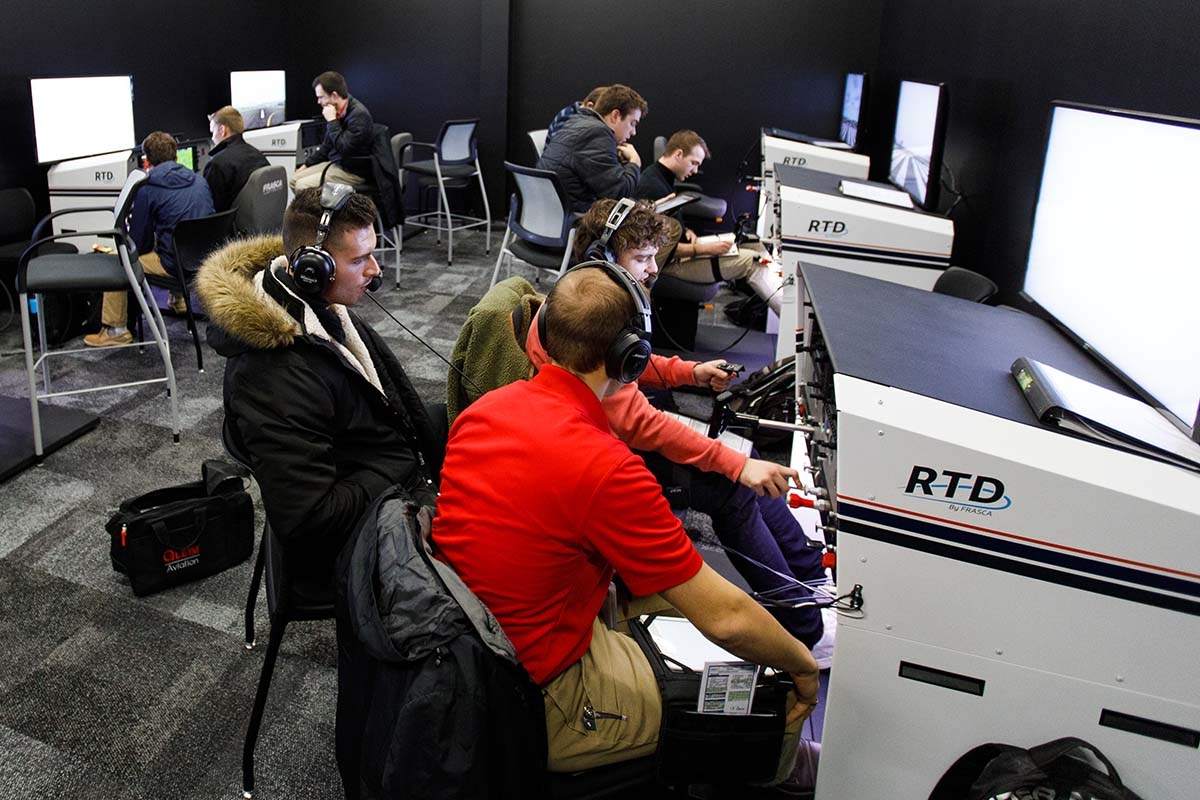
Due to its track record of passing the FAA’s weeklong inspections of its simulators without incident, Liberty’s simulator center was granted a three-year extension to its annual FAA inspection cycle in May.
“That’s a big deal,” said Martin, noting that the FAA had just placed Liberty on a two-year inspection cycle in 2020. “From the FTD (Flight Training Device) side, since 2015, we’ve had no non-qualifying tasks … and that’s awesome.”
Also, because it is a restricted Airline Training Program (ATP) school, the FAA has granted Liberty’s student pilots the ability to obtain their restricted ATP certification with 1,000 hours of flight training, rather than the standard 1,500.
Last spring, at the outset of the pandemic, Liberty pioneered a remote simulation model to continue training its students virtually online.
“I believe we were the first ones to do that, at least in collegiate aviation … and it was all FAA-certified,” Martin said.
Liberty also has a nationwide network of 90-plus affiliate flight schools that enable aspiring pilots to pursue an online aviation degree while completing their flight training at an approved Flight Training Affiliate (FTA) located near their place of residence.
Watch a video showcasing the School of Aeronautics simulation center. See inside an ALX simulator in this virtual tour.
